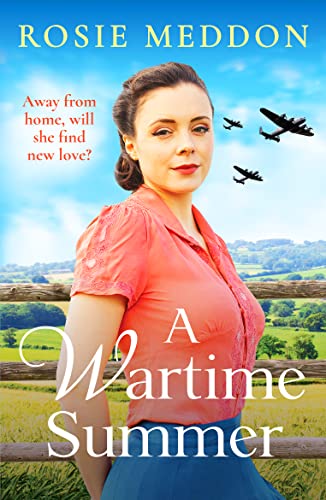A Wartime Summer (The Sisters’ War, 1)
1942, Exeter, England. World War Two is raging. The Luftwaffe has reduced the 21-year-old May Warren’s home to rubble. She has no relations, nowhere to go, and two younger sisters to see settled. Several weeks pass, and the only job she’s offered is that of housekeeper to the grumpy elderly farmer, George Beer of Fairmaid’s Farm—still, it’s one step up from a land girl, and the pay is fractionally better. There’s more than a touch of Cold Comfort Farm about the Beer farm: it’s filthy and nothing works properly; May has her hands full embarking on a massive clean and insisting that Mr Beer and the two land girls keep their muddy boots out of her kitchen and wash their hands before meals. One of the land girls, Nessa, a knowing young woman with an eye on the American military camp nearby, has no objection to accepting silk stockings in return for ‘favours’. Fortunately, May’s other neighbours are friendly—or are they? Mr Beer’s attitude to the War Ags (Ministry of Agriculture and Fisheries) orders for growing vegetables to feed Britain, rather than making cider, reminded me of Amos Starkadder’s determined recalcitrance. Could Mr Beer really lose the farm if he refused to do as the War Ags demanded? Then, one night, a fire breaks out—or is it sabotage? Things look up when May meets the attractive Dan, who obviously likes her, but can she trust him? And what is Mr Beer trying to hide?
Once I’d got over the Starkadder-like melodrama, I enjoyed Rosie Meddon’s story; I, too, had a country childhood, and I liked the way May set about identifying the country flowers and birds. The author is good at capturing the privations of country life in wartime, and I read A Wartime Summer very happily.










